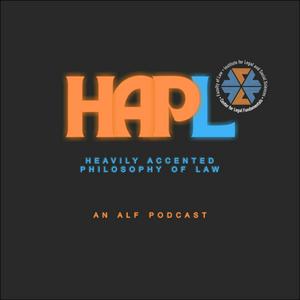Episode 9 - Responsibility for Negligence in Ethics and Law (ft. Veronica Rodriguez-Blanco)
In this episode, we delve into the debate about responsibility for negligence in ethics and law. What is exactly “responsibility”? What does responsibility involve, and it is the same across disciplines? How ancient and medieval moral psychology might (or should) inform contemporarylegal theory about these topics? What about specific types of responsibility, such as responsibility for negligence? Veronica Rodriguez-Blanco discuss with us why responsibility is a cornerstone notion in ethics and law, and what is the importance and interest of focusing specifically on responsibility for negligence. We explore first a proposal of reconstruction of this latter notion elaborated by Rodriguez-Blanco, considering the intersection of ancient and contemporary philosophy of action, theories of practical reason, and private law theory. We then analyse the key difference between a “bifurcation model” and an “Aristotelian-inspired model” of deliberation, and how the notion of “akrasia” might illuminate the phenomenon of negligence.Veronica Rodriguez-Blanco is the inaugural holder of the Chair of Moral and Political Philosophy (Jurisprudence) in the School of Law, University of Surrey and member of the Surrey Centre for Law and Philosophy. She studied law at Oxford University (MJur, Balliol College) and legal philosophy at the University of Cambridge (PhD, Corpus Christi College). Her research is located at the intersection of practical reason, philosophy of action and law. She draws insights from ancient, medieval and contemporary moral psychology and action theory to illuminate the nature of private law, legal authority and normativity. Further details on her current research can be found here. Rodriguez-Blanco’s research has been published in leading journals, and coedited co-editor of Agency, Negligence and Responsibility (CUP, 2021), Dignity in the Legal and Political Philosophy of Ronald Dworkin (OUP, 2018), Reasons and Intentions in Law and Practical Agency (CUP, 2015) . She is the author of two main monographs: Law and Authority Under the Guise of the Good (Hart/Bloomsbury Publishing, 2014, 2017), where she argues that the understanding of thestructure of practical reason sheds light on legal authority and normativity; and, for the main interest of the listeners of this episode, the very recent Responsibilityfor Negligence in Ethics and Law. Aspiration, Perspective, and Civic Maturity (Oxford University Press, 2025).[This episode was hosted by Julieta Rabanos and Bojan Spaić; edited by Bojan Spaić; uploaded and formatted by Julieta Rabanos]
